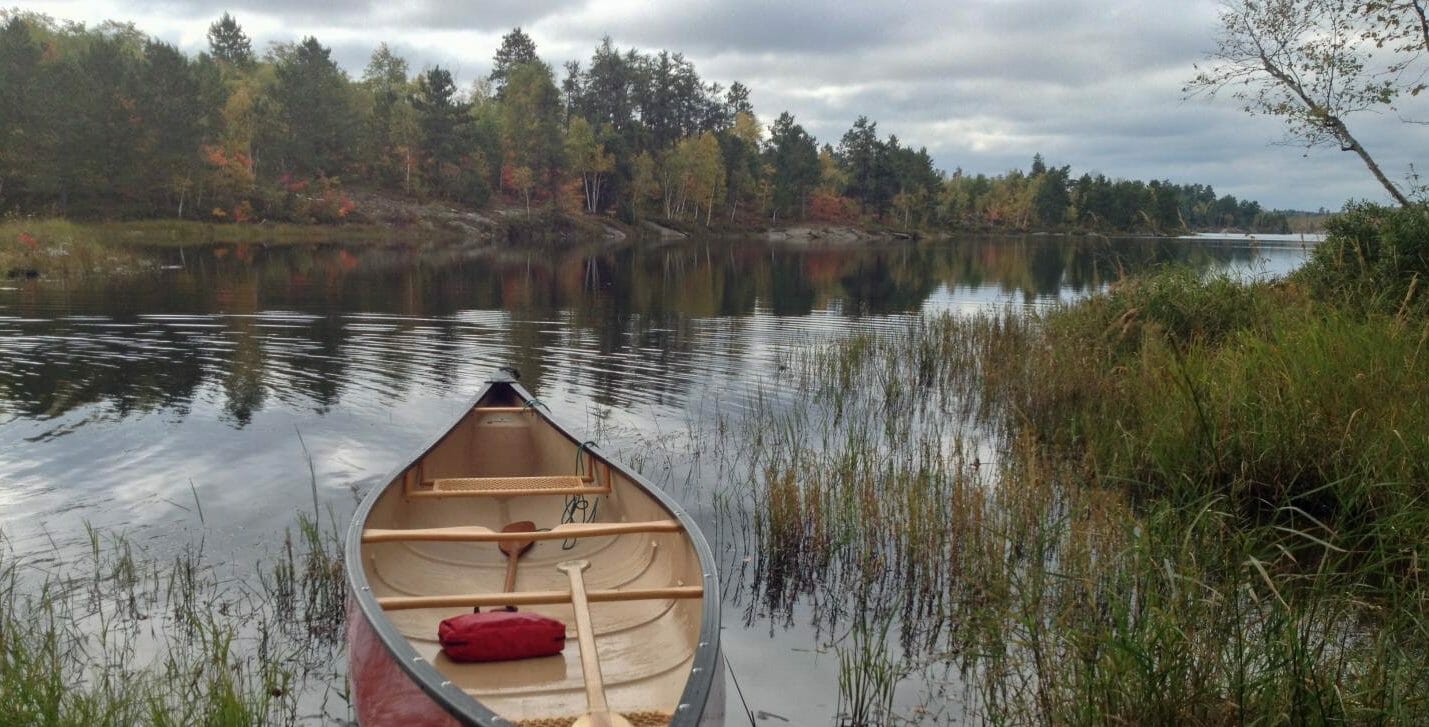Lakes Emitting More Methane as They Evaporate
As greenhouse gases are released from drying lakes, even the world’s freshwater could affect climate change calculations. Plants in this Canadian lake can feed methane production. (Andrew Tanentzap)
Plants in this Canadian lake can feed methane production. (Andrew Tanentzap)
The amounts of a powerful greenhouse gas leaking into the atmosphere are set to rise as lakes emit more methane in reaction to climate change.
The vegetation decomposing in the lakes will change – and the northern lakes of Canada could send 73% more methane – a potent greenhouse gas – into the atmosphere to accelerate global warming at an ever greater rate
And a further cause for concern as the world warms is the most abundant greenhouse gas of them all. As the world warms, its 250,000 lakes will evaporate faster. By the century’s end, they will be sending 16% more water into the atmosphere as vapour – to fall again as rain.
Both studies represent climate research at its most detailed: each is an attempt to understand the intricacies of environmental change on a small scale and then predict global impact. And both deliver the unexpected.
US and Chinese researchers who built computer models of the responses of freshwater reservoirs to changing climate report in Nature Geoscience on what may befall the vapour.
They found that, as global temperatures rose, lakes in the high latitudes – and that represents about 80% of the world’s lakes – would freeze later each winter and thaw earlier each spring.
That would mean more open water, which absorbs radiation more efficiently than ice. At the same time warmer temperatures would deliver more energy to support evaporation: the two processes could account for half of all future changes in evaporation. So much energy is trafficked in the process of lake evaporation that researchers have even suggested it as a potential source of renewable electricity.
“Typically we focus on the ‘top-down’ ways that the upper part of the atmosphere triggers feedbacks that enhance warming,” said Xuhui Lee, a meteorologist at the Yale School of Forestry & Environmental Studies.
Understanding Hydrology
“But if we want to make accurate predictions of the hydrological changes we’ll need to understand what’s happening at the bottom of the atmosphere, including what’s happening at the surface of lakes – because those changes are driving the hydrological response to climate change.”
But evaporation is not the only factor that will change. British, Canadian and German scientists report in the journal Nature Communications that they asked a simple question: how will warmer temperatures change the release of greenhouse gases from lakes?
They took samples from the decaying vegetation – deciduous leaves, pine needles and reeds and rushes – in lake beds and incubated them for 150 days to see what gases emerged.
Those lakes rich in cattails – sometimes called bulrushes – produced 400 times more methane than lakes layered with conifer needles, and 2,800 times the methane from deciduous leaves submerged in temperate forest lakes.
Rapid Spread
Methane is reckoned to be at least 30 times more powerful than CO2 at warming the Earth, with some estimates putting its potency over the short term much higher still, and climate scientists need to calculate the volumes likely to be added to the atmosphere as climates change.
The researchers found that the boreal shield of Canada – with more lakes and forests than anywhere else in the world – would change with rising global temperatures, and the numbers of lakes colonised by the cattail Typha latifoliacould double in the next 50 years, to produce 73% more methane.
“We believe we have discovered a new mechanism that has the potential to cause increasingly more greenhouse gases to be produced by freshwater lakes,” said Andrew Tanentzap, of the University of Cambridge.
“The warming climates that promote the growth of aquatic plants have the potential to trigger a damaging feedback loop in natural ecosystems.”
Your support matters…Independent journalism is under threat and overshadowed by heavily funded mainstream media.
You can help level the playing field. Become a member.
Your tax-deductible contribution keeps us digging beneath the headlines to give you thought-provoking, investigative reporting and analysis that unearths what's really happening- without compromise.
Give today to support our courageous, independent journalists.








You need to be a supporter to comment.
There are currently no responses to this article.
Be the first to respond.